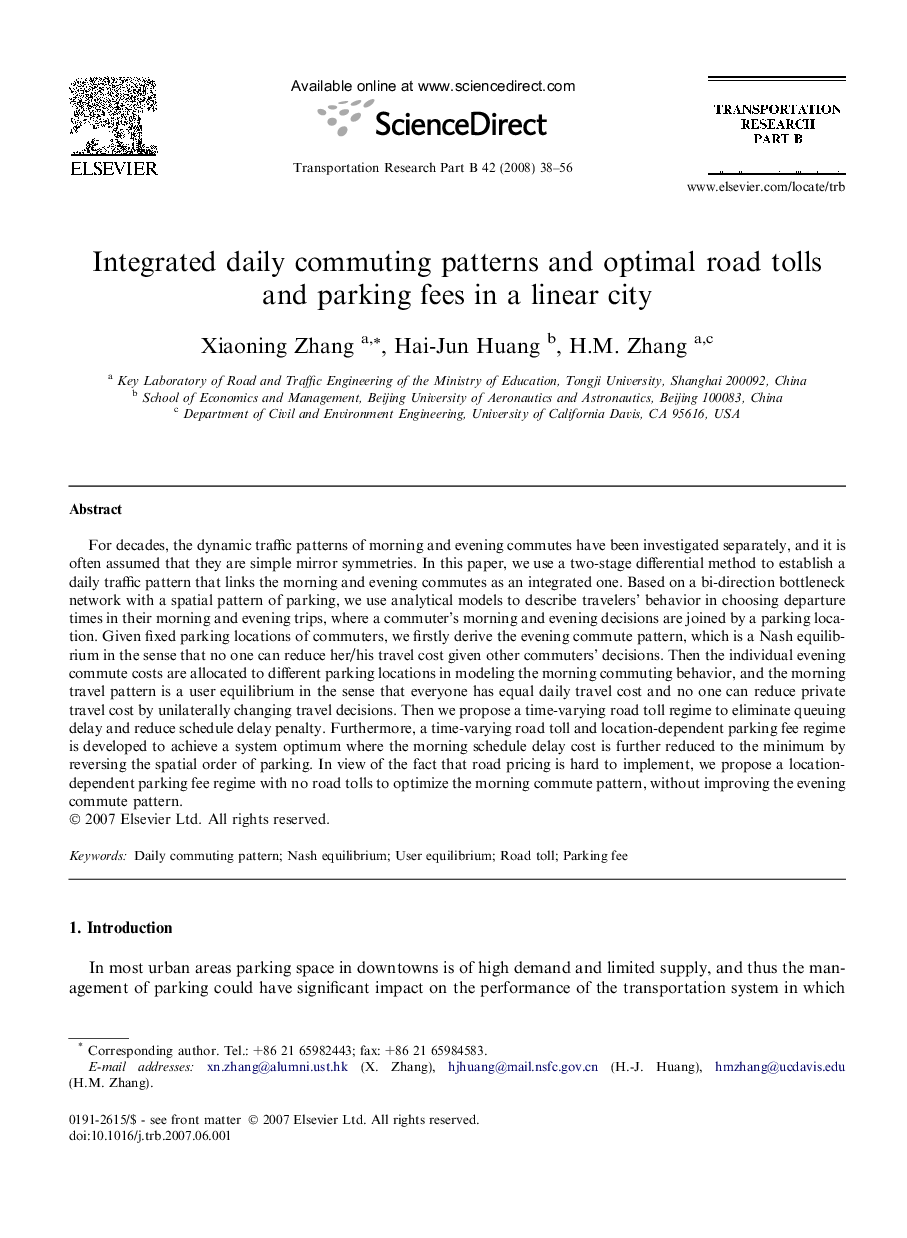| Article ID | Journal | Published Year | Pages | File Type |
|---|---|---|---|---|
| 1132963 | Transportation Research Part B: Methodological | 2008 | 19 Pages |
For decades, the dynamic traffic patterns of morning and evening commutes have been investigated separately, and it is often assumed that they are simple mirror symmetries. In this paper, we use a two-stage differential method to establish a daily traffic pattern that links the morning and evening commutes as an integrated one. Based on a bi-direction bottleneck network with a spatial pattern of parking, we use analytical models to describe travelers’ behavior in choosing departure times in their morning and evening trips, where a commuter’s morning and evening decisions are joined by a parking location. Given fixed parking locations of commuters, we firstly derive the evening commute pattern, which is a Nash equilibrium in the sense that no one can reduce her/his travel cost given other commuters’ decisions. Then the individual evening commute costs are allocated to different parking locations in modeling the morning commuting behavior, and the morning travel pattern is a user equilibrium in the sense that everyone has equal daily travel cost and no one can reduce private travel cost by unilaterally changing travel decisions. Then we propose a time-varying road toll regime to eliminate queuing delay and reduce schedule delay penalty. Furthermore, a time-varying road toll and location-dependent parking fee regime is developed to achieve a system optimum where the morning schedule delay cost is further reduced to the minimum by reversing the spatial order of parking. In view of the fact that road pricing is hard to implement, we propose a location-dependent parking fee regime with no road tolls to optimize the morning commute pattern, without improving the evening commute pattern.
